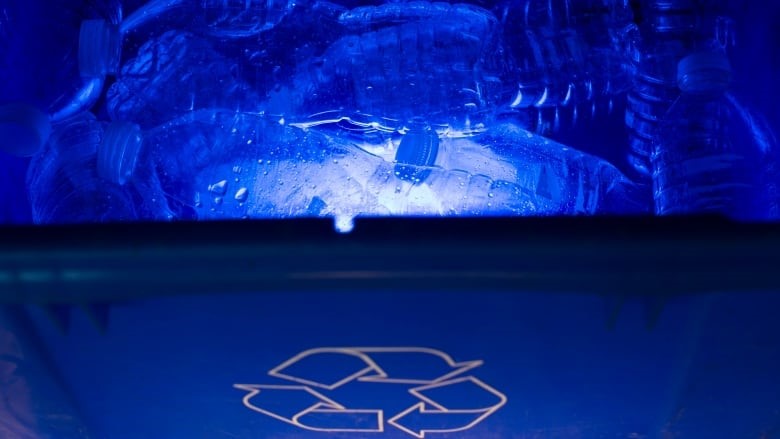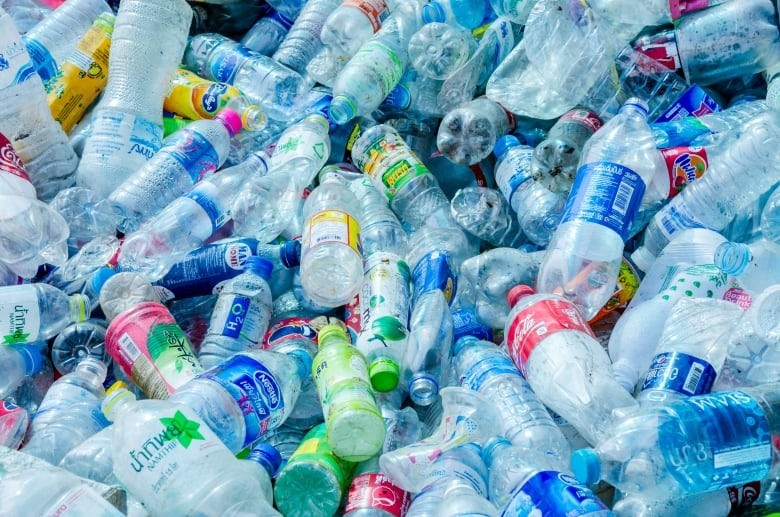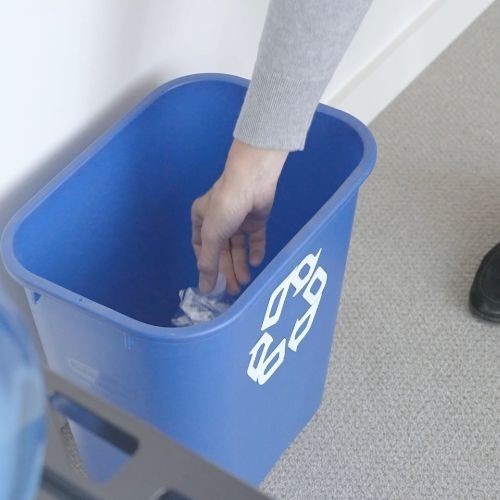We constantly advise sustainable water usage by filling a high-quality reusable bottle from your water cooler or filter. We are aware, nevertheless, that there are instances in which this is not feasible. Single-serve plastic water bottles are occasionally the only healthful option available to quench your thirst. For this reason, outlawing bottled water is not necessary. If used carefully, this choice need not lead to those water bottles being disposed of in a landfill. We’ll teach you the proper technique to recycle plastic water bottles in this post.
Table of Contents
ToggleAre Water Bottles That Are Only Used Once Recyclable?
Every year, billions of water bottles are used worldwide. Only a tiny percentage of them get recycled and retrieved in their original form. Plastic pellets made from melted water bottles can be sold to businesses so they can make carpets, clothes, furniture, and a variety of other products. This supply chain requires plastic bottles, which you must supply through curbside or drop-off recycling.

By being knowledgeable on how to recycle plastic bottles properly, you can participate in this process.
Are Plastic Water Bottles Capable of Being Recycled?
Almost everything gets recycled these days, as it is such a widespread occurrence. Plastic water bottles are not an exception, of course. In brief, the answer to the question we pose regularly is—can plastic water bottles be recycled? —is yes. It is formed of plastics, as the name implies, and practically all plastics can be recycled to create new materials.
Polyethylene terephthalate (PET) is a component used in the majority of plastic water bottles. This plastic part is lightweight, highly malleable, and naturally recyclable. The plastic bottles are recyclable because of their PET plastic content. Given this, it’s reasonable to conclude that your plastic water bottle is probably not recyclable if it’s not composed of PET. Therefore, you may wish to take a moment to determine whether your plastic water bottle includes polyethene terephthalate (PET) before returning it for recycling.
Can every water bottle be recycled?
Major carriers like Waste Management accept recyclables for plastic water bottles. Some non-standard packaging, including boxed water, might not be. Plastic layers seen in boxed waterways are challenging for recycling agencies to process. Before putting these kinds of containers in your curbside bins, make sure to check with your town.
All water bottle packaging, whether made of plastic, is fully recyclable. Bottled water containers that are empty, including the tops, should always go in the recycling bin. Less virgin plastic is required in the market by gathering these bottles and repurposing the plastic to create new containers out of old ones. Making the most of current resources and reducing waste are two aspects of a circular economy.
Recycle the Outer Packaging
The plastic container used to store bottled water that you buy in cases is not suitable for recycling. It may, however, be delivered to participating supermarkets including Dave’s, Target, and Heinen’s to be processed with other plastic film and shopping bags.
Recall your water bottle. It is not content to just finish its existence in a landfill; it has more to be and do. There’s a complete second life left in your water bottle, from decks to flip-flops to backpacks. You are responsible for bringing this about. You can start changing your neighbourhood now that you know how to recycle plastic bottles.
As is often the case with most recyclable materials, only tiny amounts of plastic bottles get recycled. The issue of items not being recycled cannot be resolved by one individual. However, you can change things one plastic bottle at a time now that you know how to recycle them.
Are Water Bottles Biodegradable?
We recognise that you may be interested in learning more about the biodegradability of water bottles. They break down naturally. Given the biodegradability of plastic components, this shouldn’t come as a surprise.
It should be noted that plastics do not naturally biodegrade unless they undergo industrial biodegradation processing. Nonetheless, certain bottles can biodegrade naturally without the need for a laborious procedure since they are composed of biodegradable polymers.
Keep in mind, too, that the biodegradation process is very different and takes a very long time. Water bottles made of plastic don’t biodegrade for hundreds of years. While it’s frequently believed that they won’t biodegrade, in the end, they do so slowly over a very long period. The fact is that if they are not recycled, a large number of the plastic water bottles that are used today will probably outlast us and end up in a landfill.

How Are Plastic Water Bottles
Make sure your plastic bottles are clean before recycling them. After that, place them in a blue recycling container that is specifically meant for plastics, including water bottles. Before the time for your area’s scheduled pick-up, place the container curbside.
Water bottles can also be dropped off at designated sites. For information about designated drop-off places in your region, contact the municipal office.
The Step-by-Step Process
Step 1: Sorting
Sorting is the initial stage of the plastic water bottle recycling process. This is the area where recyclable and non-recyclable plastic bottle varieties are separated. Non-recyclable plastic bottles are disposed of or sent to the incinerator as garbage, whereas recyclable plastic bottles, such as PET plastic, are transported to the processing plant.
Additionally, contaminants or other pollutants that could have gotten into the plastic bottles are eliminated during sorting. These might consist of bugs or even other containers like tin cans, together with waste like leaves. Since water bottle tops undergo various processes, they are also separated at this stage.
Step 2: Shredding
Subsequently, recycled plastic bottles undergo a shredding procedure in which they are sent through machinery that breaks them up into little flakes. The flakes make the cleaning procedure more thorough and dissolve considerably more quickly.
Step 3: Cleaning
After being reduced to flakes, the plastic bottles are cleaned to get rid of any remaining material and any dust or debris that may have been collected within. Traces of drinks or liquids that had been kept in the plastic bottles for their initial purpose were also eliminated after cleaning. At this point, some recycling facilities additionally sanitize the plastic flakes.
Step 4: Melting
After being slowly heated, the flakes are melted and formed into small, hard pellets that may be used as raw materials to make new plastic bottles, pallets, packaging, and other items. Both remelting and packing the pellets as raw materials are simple tasks.
Step 5: Molding
Before being put into moulds, the recycled plastic bottles go through another melting process before they’re ready to be melted and remoulded into new bottles. Since plastic cools very quickly, the moulding process is completed swiftly. Now, the pellets may be used to create new items based on the demand for the order.

Your Role to Recycle Plastic Water Bottles at Home
Reusing or repurposing plastic bottles is another way to recycle them at home in addition to bringing them to recycling centres. Because plastic bottles may be used for a variety of purposes, recycling them at home is frequently easy and flexible.
Plastic bottles that have been recycled can be found in a broad variety of items.
PET (or PETE) is the virgin plastic that is used in the creation of water bottles; however, when PET is recycled, it is referred to as RPET, REPET, or RPETE. PET is also known as PETE. This recycled material is used in a wide range of products, including but not limited to new water bottles, upholstery, t-shirts, industrial strapping, polyester carpet fibre, and fiberfill for sleeping bags, to name just a few examples.
This approach not only uses less energy and fewer resources than the creation of those things using virgin plastic, but it also prevents bottles from being thrown away in landfills, thus protecting the use of resources and preventing trash from being buried. In addition, this method reduces the amount of garbage that is buried.

75% less energy is required to make recycled bottles than new ones.
Recycling plastic bottles can assist in reducing the number of resources required throughout the production process, even if it may not directly address end-of-life issues when the bottle is thrown away. The recycling of plastic bottles leads to significant energy savings. A 75% reduction in energy use is observed for each bottle; estimates suggest that this strategy might result in energy savings equivalent to taking 360,000 cars off the road.
Reusing plastic bottles can also contribute to lowering water consumption, which is an intriguing finding. This is because six times as much water is needed to produce new water bottles as there is in recycled bottles.


